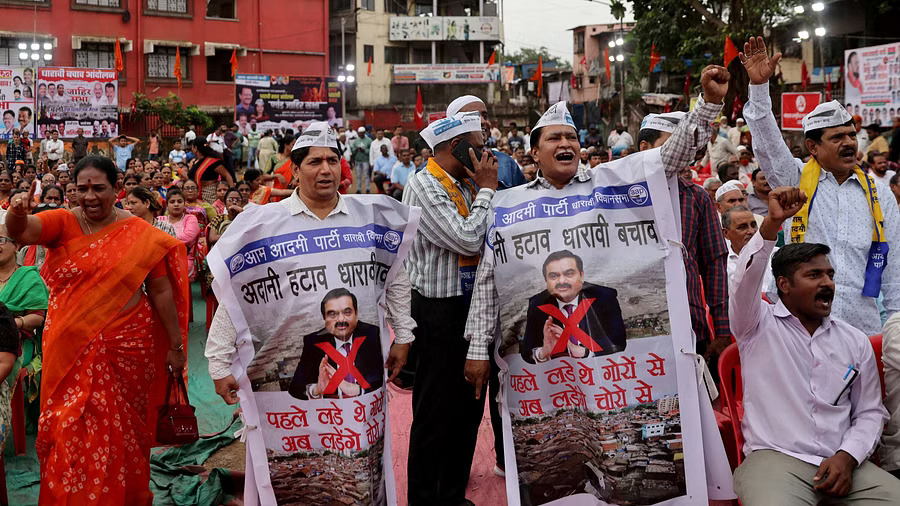The Adani Group’s ambitious proposal to redevelop Mumbai’s Dharavi, one of Asia’s largest slums, has sparked a wave of skepticism and concerns about potential favoritism in the bidding process. The controversial move has left residents questioning the motivations behind the decision and whether it truly prioritizes the interests of the local community.
As news of the Adani Group’s bid to remake Dharavi makes headlines, residents are expressing doubts about the transparency and fairness of the selection process. The project, which aims to transform Dharavi into a modern and organized urban area, holds the promise of improved living conditions for thousands of residents. However, concerns about corporate influence and potential gentrification loom large.
Critics point to the opaque nature of the bidding process, which some argue lacks sufficient transparency and public engagement. The Adani Group’s prominence in various sectors and their close ties to political circles have fueled suspicions of favoritism. Many residents fear that their voices and needs might be overshadowed by corporate interests and profit-driven agendas.
Local activists and community leaders have taken to social media and public forums to voice their concerns, emphasizing the need for a participatory approach that prioritizes the rights and aspirations of Dharavi’s residents. The transformation of Dharavi represents a delicate balancing act between economic development and preserving the unique character and identity of the community.
Proponents of the project argue that private sector involvement is essential for urban redevelopment, and the Adani Group’s resources and expertise could potentially lead to positive outcomes for Dharavi’s residents. However, the lack of transparency and robust community engagement has led to a growing sentiment of mistrust and skepticism.
The Dharavi redevelopment project raises broader questions about the role of private corporations in shaping urban landscapes and the need for accountable governance in such initiatives. Critics call for greater transparency, public consultation, and safeguards to ensure that the project’s benefits are shared equitably among all stakeholders.
As discussions continue to unfold, the fate of Dharavi hangs in the balance, with the promise of transformation accompanied by concerns of gentrification, displacement, and the erosion of community identity. The Adani Group’s bid to remake Dharavi remains a contentious issue that highlights the complexities of urban development, corporate influence, and the aspirations of marginalized communities.










